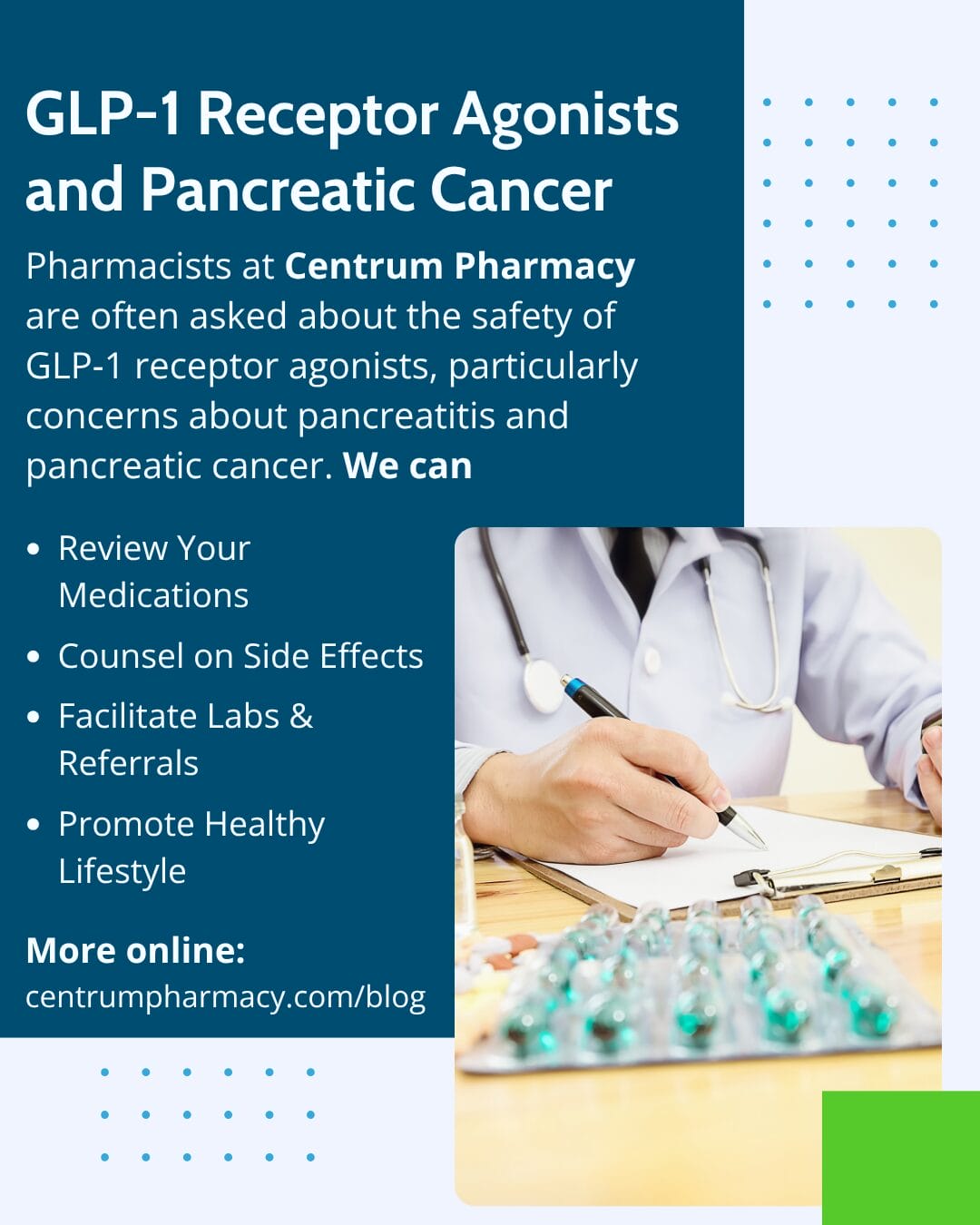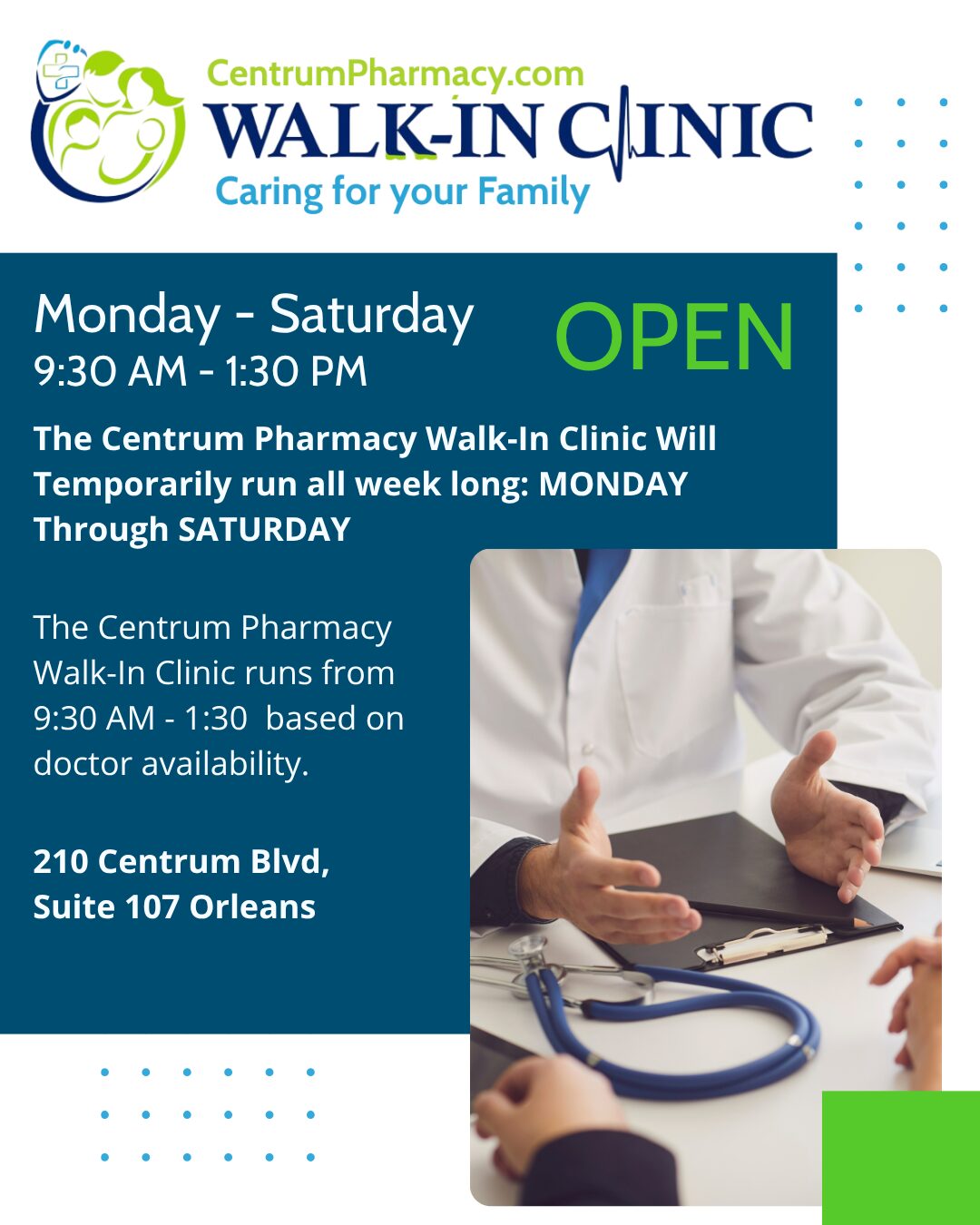As specialists in diabetes care and medication management, pharmacists at Centrum Pharmacy are often asked about the safety profile of glucagon‑like peptide‑1 (GLP‑1) receptor agonists—particularly concerns about pancreatitis and pancreatic cancer. A new population‑based cohort study brings reassuring news: long‑term use of GLP‑1 receptor agonists does not appear to increase the risk of pancreatic cancer.
Study Overview
- Population: 543,595 adults with type 2 diabetes (mean age 59.9 years; 51% women)
- Exposure: 6.1% used GLP‑1 receptor agonists (e.g., dulaglutide, liraglutide, semaglutide, tirzepatide); 19.7% used basal insulin
- Duration: Median follow‑up of seven years
- Outcomes: 1,665 cases of pancreatic cancer diagnosed
- Key Finding: No statistically significant increase in pancreatic cancer risk among GLP‑1 users compared to basal insulin users over five to seven years
Although earlier randomized trials and shorter observational studies suggested potential risks—leading Health Canada to list pancreatitis (but not pancreatic cancer) as a warning in product monographs—this real‑world analysis provides seven years of follow‑up and supports the long‑term safety of GLP‑1 therapies.
What This Means for You
- Reassurance: If you are managing type 2 diabetes with a GLP‑1 receptor agonist, current evidence does not show an elevated pancreatic cancer risk.
- Ongoing Monitoring: As with all diabetes treatments, regular follow‑up is essential. Your pharmacist can help coordinate laboratory monitoring and symptom checks for pancreatitis.
- Emerging Data: Some recent studies even suggest a potential preventive benefit of GLP‑1 agonists against pancreatic cancer in diabetes populations—though more research is needed beyond seven years.
Role of the Pharmacist
At Centrum Pharmacy, our diabetes‑care specialists:
- Review Your Medications: We ensure optimal dosing and timing for GLP‑1 therapies and other agents.
- Counsel on Side Effects: We educate you on early symptoms of pancreatitis (e.g., severe abdominal pain, nausea) and when to seek medical attention.
- Facilitate Labs & Referrals: Through collaborative practice, we can arrange for routine labs, liaise with your physician, and refer you for specialist care if necessary.
- Promote Healthy Lifestyle: We support dietary modifications, physical activity, and weight‑management strategies that complement medication therapy.
Conclusion
GLP‑1 receptor agonists remain a powerful tool for managing type 2 diabetes, with a growing body of evidence supporting their safety profile regarding pancreatic cancer. If you have questions about starting or continuing GLP‑1 therapy—or any aspect of your diabetes care—book a one‑on‑one consultation with a Centrum Pharmacy travel and immunization specialist. Let our pharmacists guide you with expert, personalized advice every step of the way.
Stay Connected with Centrum Pharmacy!
If you found this article helpful, don’t forget to like, share, and Follow to stay up to date on our latest health tips, pharmacy updates, and wellness advice.
Come for the Convenience, Stay for the Service.
Caring for Your Family Since 1999
Disclaimer: The medical information on this site is provided as an information resource only and is not to be used or relied on for any diagnostic or treatment purposes. This information does not substitute for professional diagnosis and treatment. Please do not initiate, modify, or discontinue any treatment, medication, or supplement solely based on this information. Always seek the advice of your healthcare provider first. Full Disclaimer.




